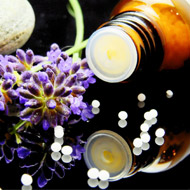RCVS updates position on homeopathy

There has been much debate in the veterinary profession about the efficacy and ethics of complementary medicines.
The RCVS has updated its position on homeopathy to say such treatments must not delay or replace treatments that are based on sound scientific evidence.
The news comes after much debate within the veterinary profession about the efficacy and ethics of complementary medicines. While some practitioners say homeopathy can deliver health benefits, others argue there is no scientific evidence to say it actually works.
In a statement, the RCVS said: ‘Homeopathy exists without a recognised body of evidence for its use. Furthermore, it is not based on sound scientific principles. In order to protect animal welfare, we regard such treatments as being complementary rather than alternative to treatments for which there is a recognised evidence base or which are based on sound scientific principles.
It continued: ‘It is vital to protect the welfare of animals committed to the care of the veterinary profession and the public’s confidence in the profession that any treatments not underpinned by a recognised evidence base or sound scientific principles do not delay or replace those that do.’
In January, the RCVS confirmed that it was to review its position and guidance on homeopathy following a meeting of the Standards Committee. The announcement proceeded comments made by the Advertising Standards Authority on claims made in marketing materials and the way in which homeopathy is viewed by the NHS.
Commenting, RCVS president professor Stephen May said: “It is fair to say that debates on either side of this issue have been passionate and this too has been reflected in the debates that we have had amongst Council members as to how to best articulate the College’s position on complementary and alternative medicines.
“What we have is a statement that reinforces the evidence-based and sound scientific foundations of our profession and our commitment to put animal health and welfare at the forefront of all we do. I am very pleased that the overwhelming majority of Council members agreed with this statement and that the College has a firm and clear position on this important topic.”



 The Animal and Plant Health Agency (APHA) has updated its online reporting service for dead wild birds.
The Animal and Plant Health Agency (APHA) has updated its online reporting service for dead wild birds.